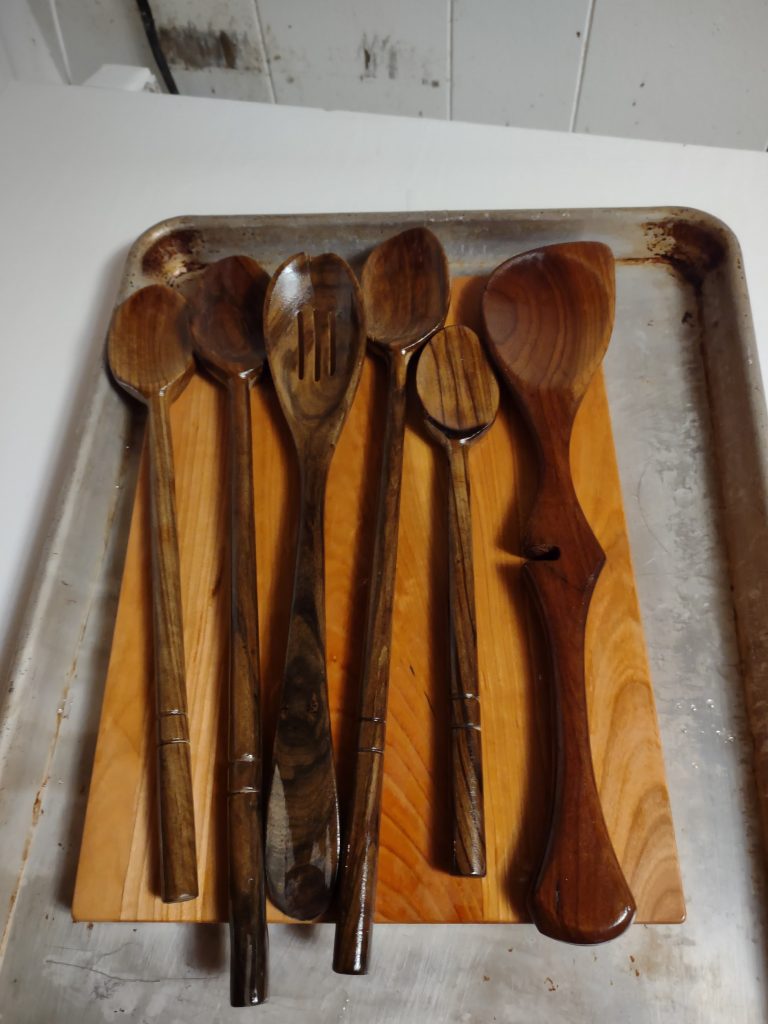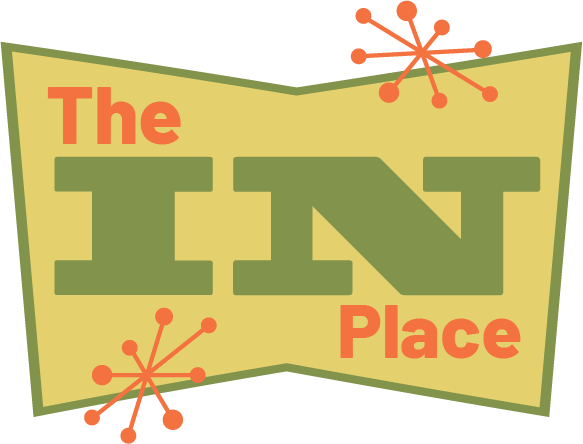
As ADHDers we are clutter prone. There is no denying it. There are many reasons why. I think I’ll probably cover that in another post. But, as you move through life and accumulate things, think about this: everything you bring in to your life has some cost after the initial cost of purchase. Even if the acquisition is free, you have to store said item. You may have to maintain it. You may have to clean it. If you move, you’ll have to move it.
I am not a proponent of not having things. I have plenty of things. But I think I can offer some guidelines as to what you should bring in to your life and why that may make your things more enriching and less of a collective albatross around your neck.
Maybe it’s a good time to answer the question you are surely asking yourself, why the heck has he posted a picture of wet wooden spoons. First, I’ll correct you and point out that they aren’t wet. They are glistening with mineral oil. Five out of these six spoons are almost 18 years old. We got them through our registry when we got married in 2005. You can see that there is a chip in the slotted one where I got a little to “intense” when making pesto in the blender. And some are getting a little worn at the tip. If you don’t know, I’m a classically trained chef. The spoons get quite a workout on a regular basis.
I’ve included a picture of them… because an oiled, glistening, well-worn Olivewood spoon is a magnificent sight to behold… and because it nicely illustrates the first few points about what to bring into our lives.
- Take your time & don’t be impulsive. Buy things of quality that will last.
- Even things of quality need to be taken care of. Make sure you want to make the commitment to care for the things you buy.
- For the most part, make sure you are going to get good use out of them. Probably not everyone needs six wooden spoons. Truthfully, I could probably get by with one fewer. But I do use all of them and…
- Have a place for everything that you bring into your world, a real place where it fits comfortably and is easily accessible when you want to use it. If you can’t get to it, you won’t use. Then, what’s the point.
- Remember that we have a much harder time getting rid of things than we do at getting things. Think twice before you buy, as it’s still much harder to decide to part with something once it’s yours.
I’ll leave you with this. I was once working with an organizing client. She was a very nice women but she wasn’t making much progress. Even with my support, she was really just “pushing stuff around.” In a moment of some frustration, but also in an attempt to disarm her with humor, I blurted out, “Do you want to be the curator of the museum of your crap or do you want to live your life?” I never really got an answer and her apartment never really got organized.
Stuff can get in the way of your life. I like to try to focus on bringing in stuff that supports activities that make me happy. Stuff, in and of itself rarely makes me happy in a lasting way. Sure, I love these spoons and their sexy sheen. But I’m willing to bet that that is because they represent and support my love of cooking. They are, in some way, all the risotto, all the cacciatore, all the roasted parsnips, all the potato leek soup that they have made with love.
You know the disclaimer by now. I’m not going to bother to copy and paste it.
